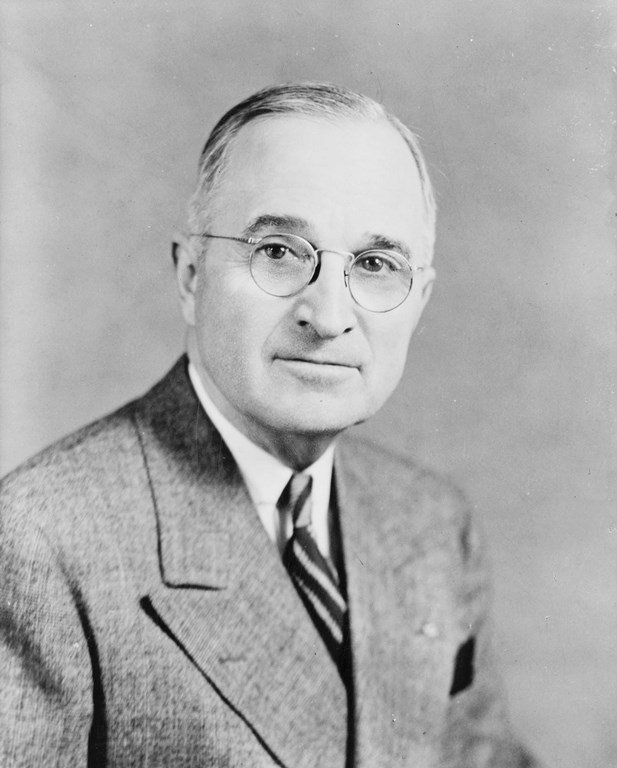President Harry S. Truman Approves NSC 64, Which Recommends Checking Communist Expansion
April 24, 1950

President Harry S. Truman approves National Security Council Memorandum (NSC) 64. The State Department and National Security Council draft the memorandum, recommending that “all practicable measures be taken to prevent further Communist expansion in Southeast Asia.”1
Truman’s NSC 64 committed the United States to defend Southeast Asia from Communist aggression in the Cold War. Once the Korean War broke out several months later, the United States military created the Military Assistance and Advisory Group, Indochina (MAAG-I), which enabled the United States to provide military aid to French forces in their war with Viet Minh insurgents. Although Truman’s initial commitment to Indochina in 1950 consisted of just four military advisers, this seemingly insignificant start pushed the United States down a path to greater involvement in the war in Southeast Asia that would last for the next quarter century. Historians disagree whether the United States’ intervention in the Vietnam War advanced the nation’s strategic goals in the Cold War and whether success in Southeast Asia was ever possible.
Some scholars argue that the Soviet Union and People’s Republic China clearly appeared to be on the offensive in 1950, and that Vietnam, Korea, and Taiwan served as crucial fronts for containing Communist expansion in Asia. These writers note that memories of the Munich Conference of 1938, when British, French, and Soviet delegates failed to halt Nazi Germany’s expansionist ambitions that led to World War II, greatly influenced American policymakers’ decision-making in 1950. Defenders of the American decision to intervene in Asia maintain that this policy was validated by the fact that Communist expansion there was limited to North Korea and Indochina after 1950. Further, these authors emphasize that the United States’ military commitment to Asia preserved democratic governments in Japan and South Korea, two important strategic and economic allies.
Other historians insist that American policymakers misread the risk a Communist Vietnam posed to the United States and its allies in Asia and in the scheme of the wider Cold War. These authors believe the United States failed to understand the internal dynamics of the long Vietnamese struggle for independence and blindly assumed American expertise could install a stable, democratic regime in Vietnam. As a result, the United States engaged in a costly and unsuccessful conflict in Vietnam, yet still prevailed as the victors in the global Cold War.
FitzGerald, Francis. Fire in the Lake: The Vietnamese and the Americans in Vietnam. Boston: Vintage Books, 1972.
Halberstam, David. The Making of a Quagmire: America and Vietnam During the Kennedy Era. Lanham, MD: Rowman & Littlefield, 2008.
Herring, George C. America’s Longest War: The United States and Vietnam, 1950-1970. New York: McGraw Hill, 2001.
Hess, Gary R. Vietnam: Explaining America’s Lost War. Malden, MA: Blackwell Publishing, 2009.
Lewy, Guenter. America in Vietnam. New York: Oxford University Press, 1980.
Lind, Michael. Vietnam: The Necessary War: A Reinterpretation of America’s Most Disastrous Military Conflict. New York: The Free Press, 1999.
Spector, Ronald. Advice and Support: The Early Years, 1941-1960. Washington DC: U.S. Army Center of Military History, 1983.